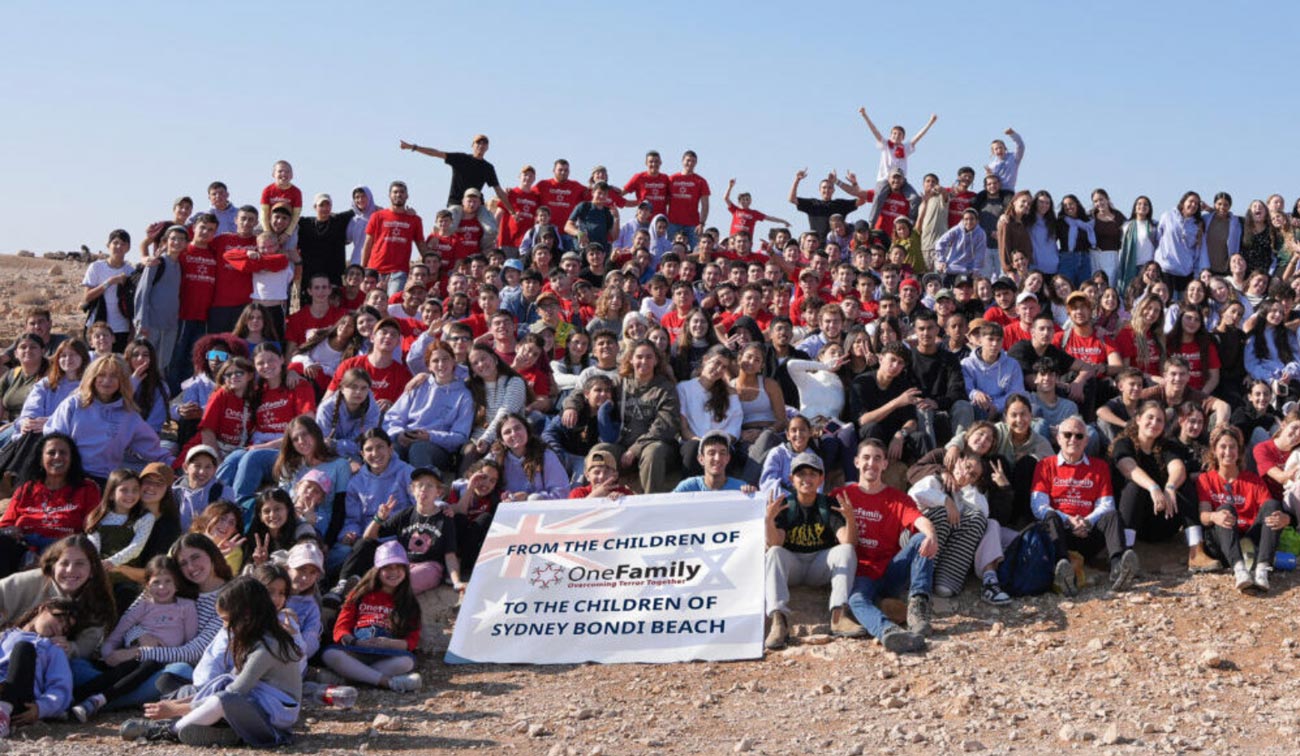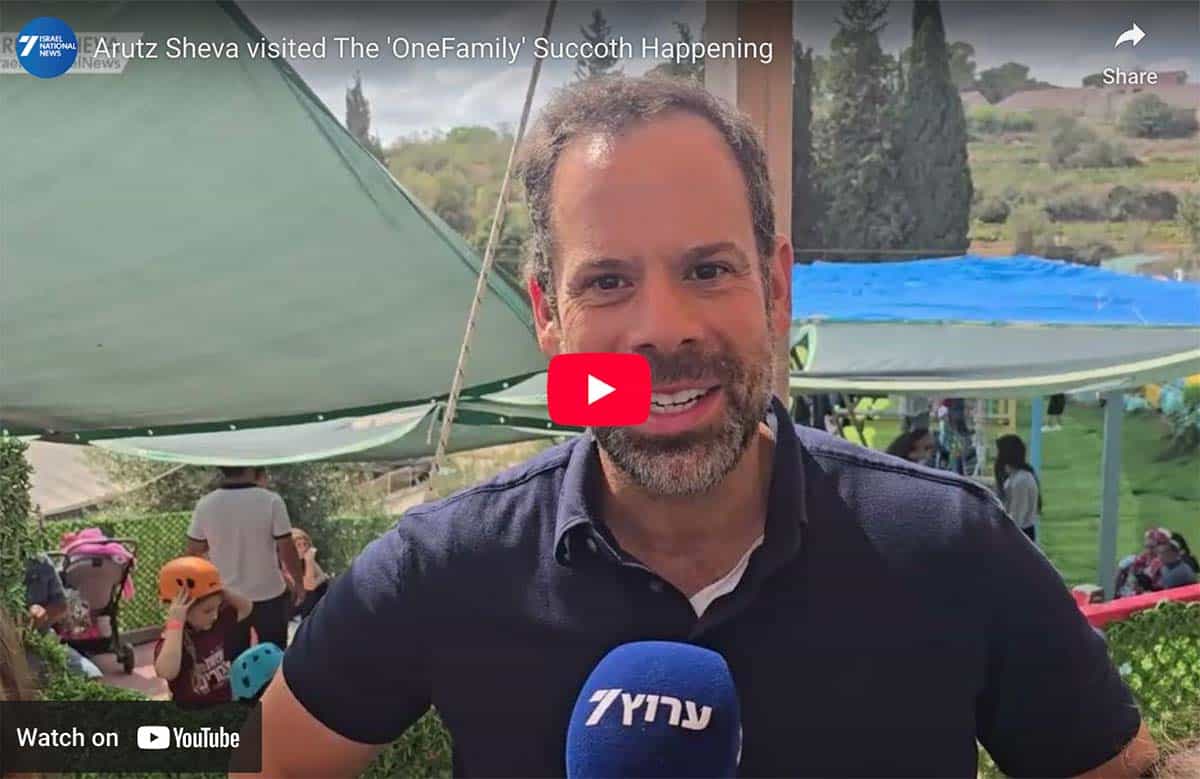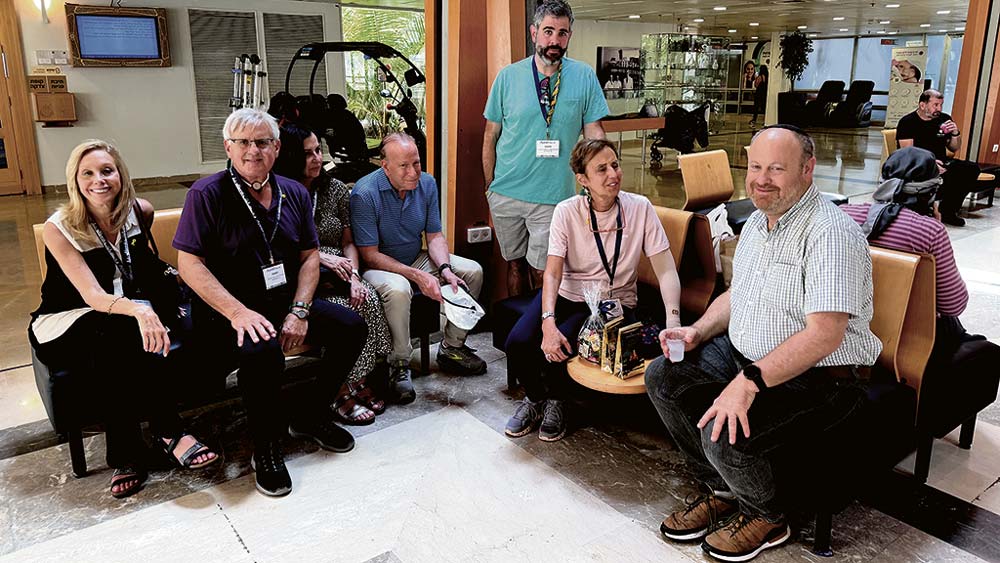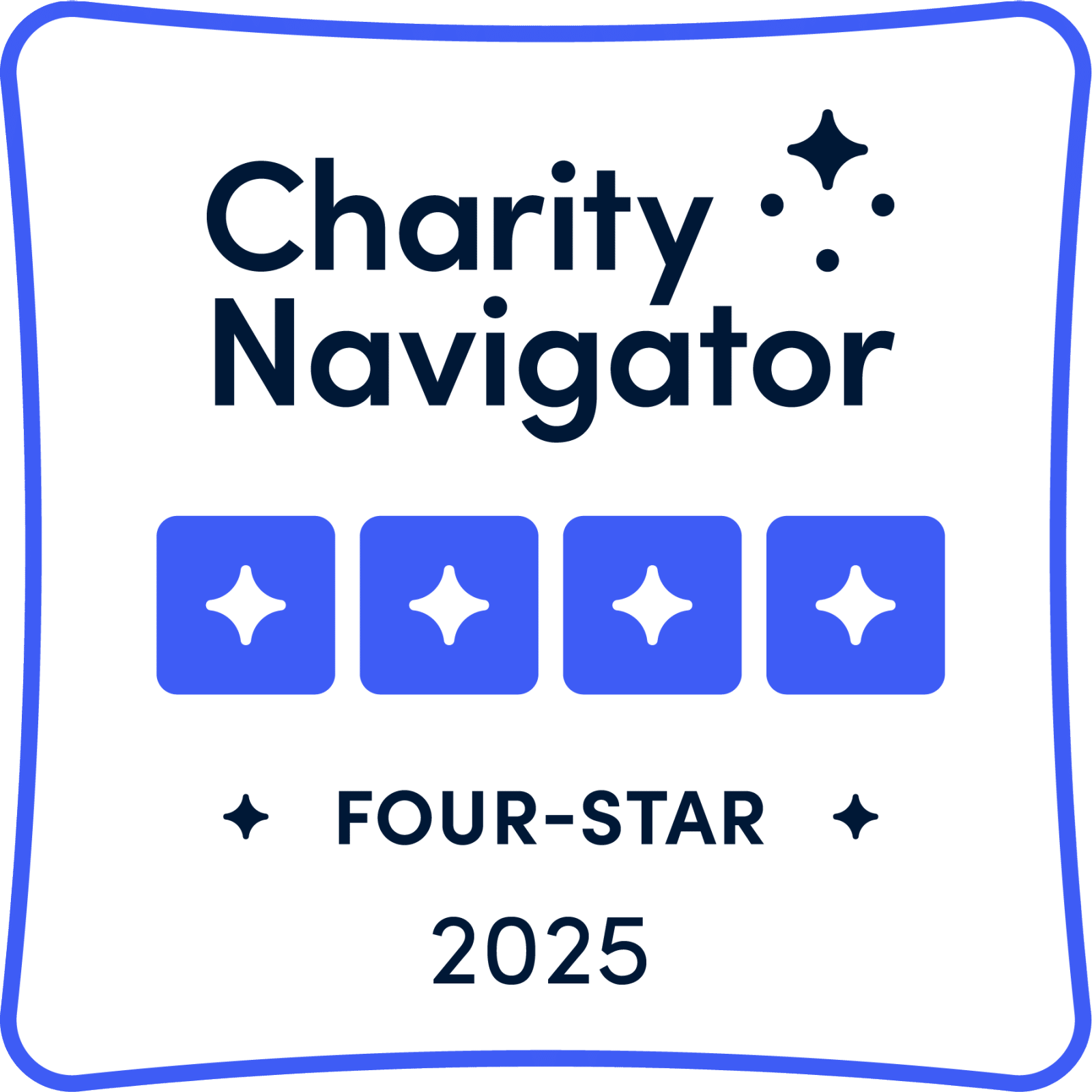OneFamily, has been offering social, financial, and emotional assistance to all victims of terror for over twenty years.
Originally article in The Jerusalem Post By Alan Rosenbaum
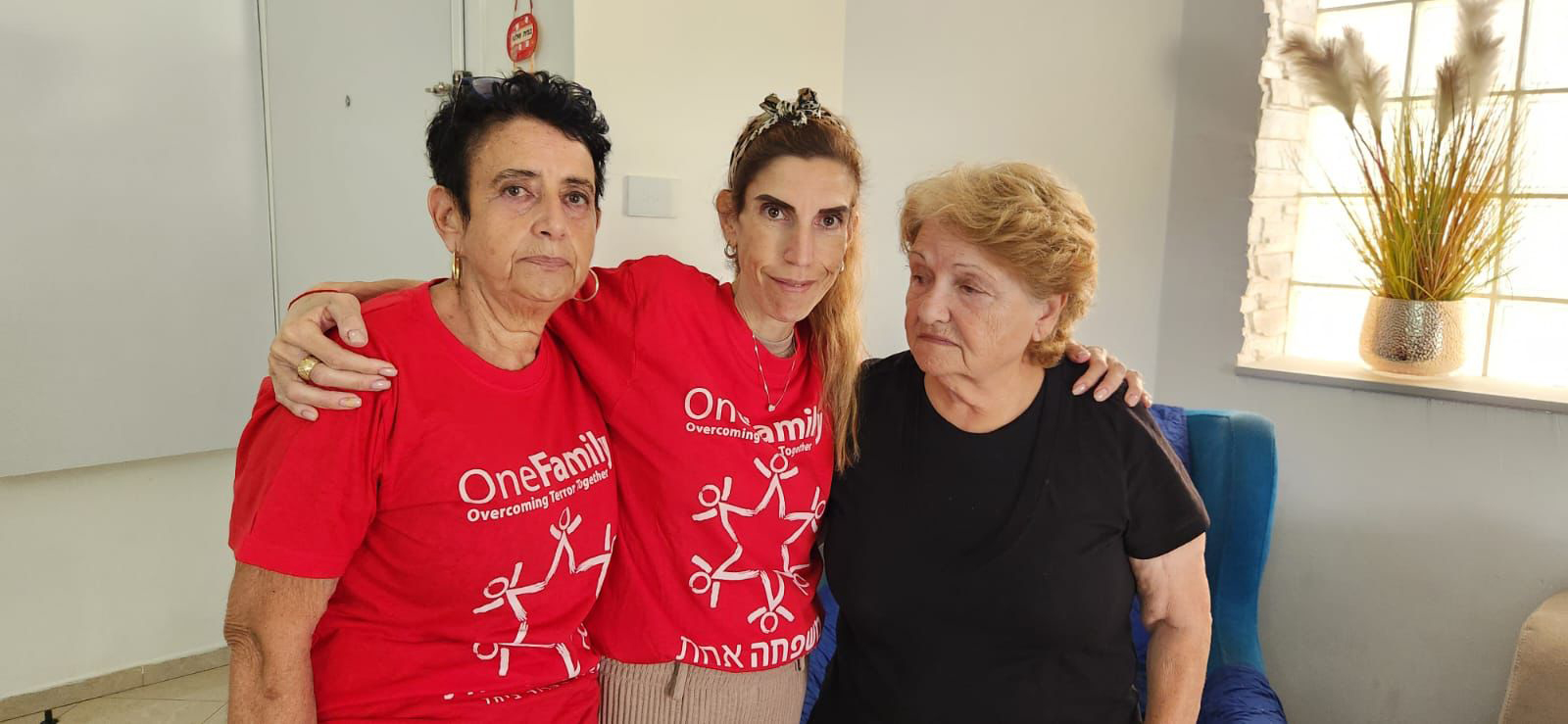
Past bereaved mother at left ,visiting a newly bereaved mother on the right. OneFamily’s Southern director is in middle. The newly bereaved mother lost her son, a soldier, eight years ago and now her second son and his wife were killed, leaving a 7 year old daughter.
(photo credit: Meir Povlovsky)
In the midst of war, Israel’s citizens find themselves in a situation of chaos and uncertainty. Tens of thousands of soldiers are at the front, the country’s economy and educational system have been disrupted, and the daily sound of sirens causes fear and uncertainty throughout the country.
For over twenty years, OneFamily, with its staff of professionals and case workers, has offered social, financial, and emotional assistance to all victims of terror. The organization, which is almost exclusively privately funded, has invested over NIS 300 million since its inception on healing retreats, financial aid, and many other services for over 5,000 victims of terror.
This time, it is different. In a span of less than 24 hours, 1,400 people were murdered. A vast group of shattered families was created overnight – bereaved parents, widows and widowers, siblings, and orphans.

Two hundred children at the OneFamily bereaved children’s Chanukah camp. (Credit: Meir Povlovsky)
In an effort to address the tragedy, OneFamily is enlisting the assistance of individuals who lost family members in terror attacks in years past and who have been supported by OneFamily, to help bereaved parents, children, and siblings from the October 7 attacks.
Marc Belzberg, who founded OneFamily with his wife Chantal, says that what helps bereaved families rebuild is the unity and togetherness experienced when people who have suffered loss engage with those who have had similar experiences. “We have discovered that the best methodology is forming a new family of the people who went through what you went through, forming your own support group in a warm familial context, where they can be themselves. They become friends for life, and that friendship is more valuable than anything else we do.”
Dr. Ed Pakes, a Toronto-based bereavement psychiatrist who has worked with OneFamily, says that the organization’s strategy of matching those who have had similar experiences of bereavement ultimately brings people together and helps them recover. “This strategy works very well because they know the situations and are not afraid to put people together with similar loss experiences. No two trauma experiences are exactly the same, but they are close enough. Out of that comes a new meaning of one family. People who have experienced these traumas often feel that they are the only ones in the world who have had that experience. Putting them together with those who have had similar experiences makes an extended family for them.”
OneFamily numbers seven different divisions with activities tailored to each group – bereaved parents, bereaved children, bereaved teenagers, bereaved young adults, widows and widowers, and a special division for young people who lost both parents in terror attacks, as well as one for those wounded in terror attacks.
The organization continues to explore new avenues in treating trauma. On Wednesday, sixty French-speaking doctors, social workers, and psychiatrists gathered at OneFamily for an all-day seminar with professionals from France on providing psychological first aid during emergencies.
Chantal Belzberg, CEO of OneFamily, added, “We are waiting with open arms to comfort, embrace, and help the many who have suffered the worst tragedies in the last three weeks, to find the will to choose life.”
The Jerusalem Post and OneFamily are working together to help support the victims of the Hamas massacre and the soldiers of Israel who have been drafted to ensure that it never happens again.

